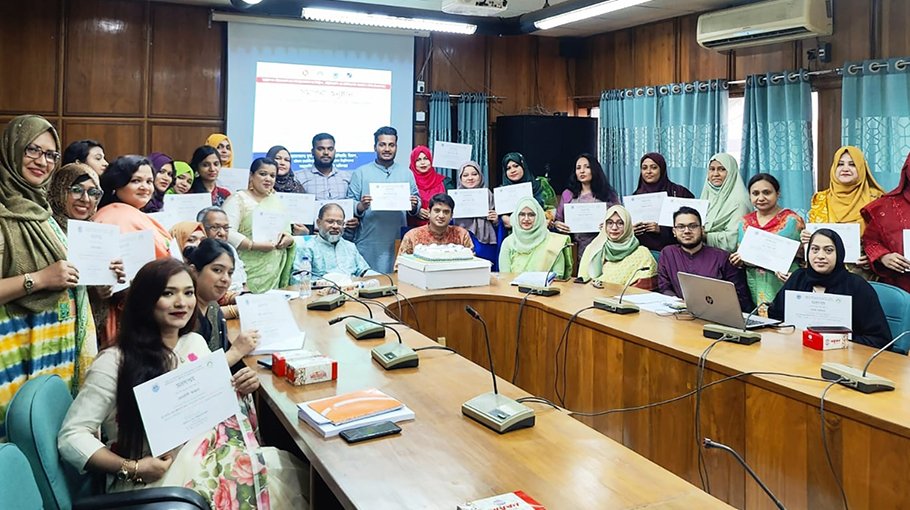Training prog on food processing ends at CVASU

A 12-day on-the-job training programme on ‘Food Processing and Preservation’ was held at Chattogram Veterinary and Animal Sciences University (CVASU).
The training was organised under the ‘Programme on Agricultural and Rural Transformation for Nutrition, Entrepreneurship and Resilience in Bangladesh (Partner-DAM)’ project implemented by the Directorate of Agricultural Marketing at the initiative of the Food Processing and Engineering Department of CVASU. 25 young and women entrepreneurs from Chattogram region participated in the programme held on May 12-23. CVASU Vice-Chancellor Professor Dr. Mohammad Lutfur Rahman was present as the chief guest at the closing ceremony of the training. University Treasurer Professor Dr. Md. Kamal and Deputy Director of the Department of Agricultural Marketing, Chittagong, Md. Siraj Uddin Hossain were present as special guests. Head of the Food Processing and Engineering Department, Professor Dr. Md. Kausar-ul-Alam presided over the program, and teachers, officers and employees of the department were present, said CVASU sources on Sunday.
CVASU Vice-Chancellor Professor Dr. Mohammad Lutfur Rahman highlighted the goals and objectives of the university as well as the importance of industry-academia cooperation and mentioned the need for knowledge creation at the field level.
In his speech as the president, Head of the Food Processing and Engineering Department, Professor Dr. Md. Kausar-ul-Alam advised the trainees to apply the acquired knowledge in real life.
This 12-days job training, participants gained practical experience about modern technology-based food processing methods. As a result, they are preparing to establish themselves as entrepreneurs, which will create new employment opportunities in the local small and medium enterprises (SME) sector and further strengthen the rural economy. At the same time, as the trainees acquire skills in preparing and preserving safe, healthy and nutritious food, it will play an important role in protecting food security and public health. In addition, through processing and preserving agricultural products, wastage of produced products will be reduced and marketing will be easier, which will pave the way for a sustainable agricultural marketing system. This training program is expected to play a helpful role in achieving the Sustainable Development Goals (SDGs) in addition to creating skilled human resources for the future



